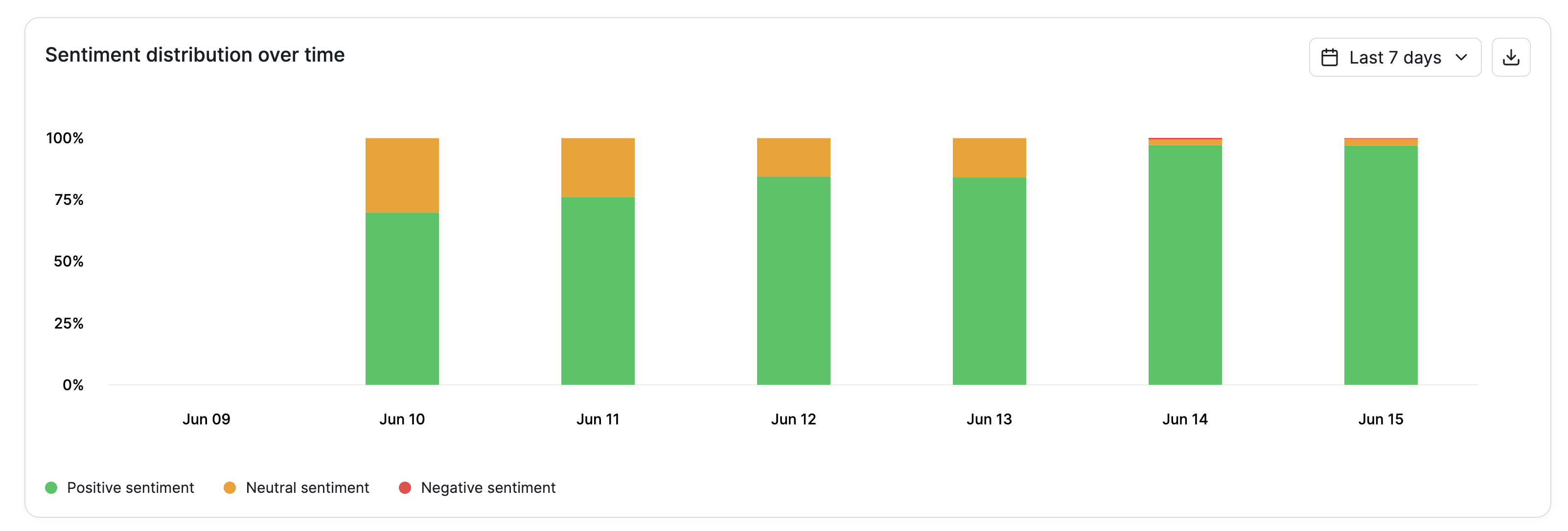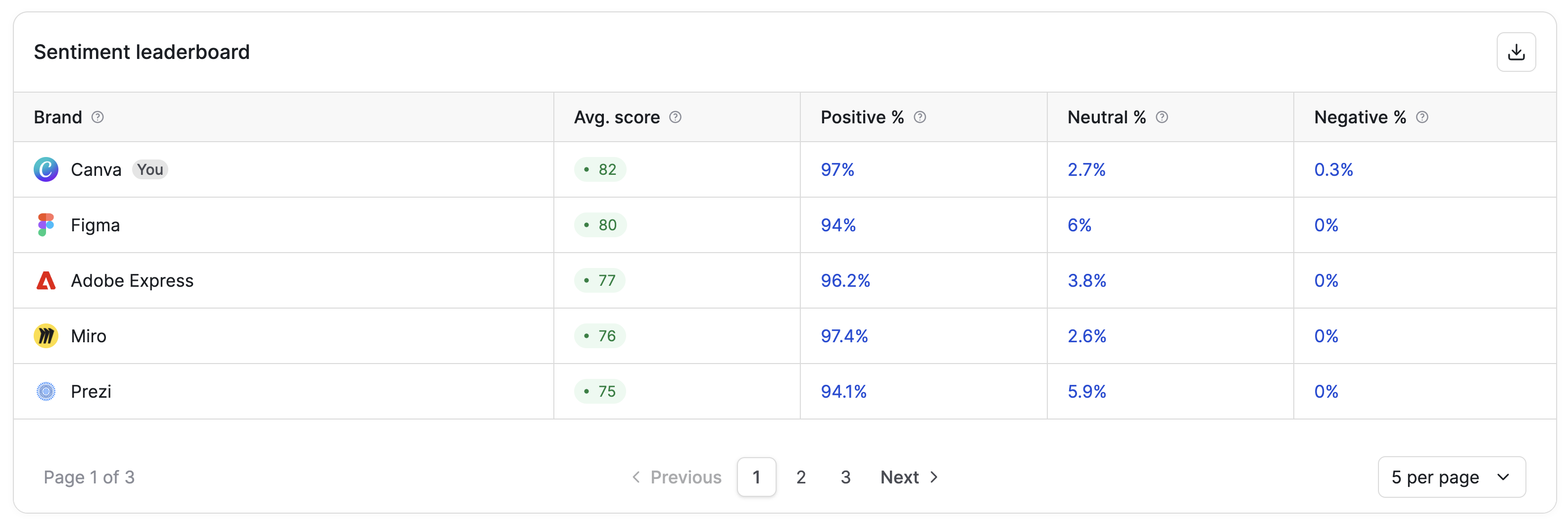Overview Page - Sentiment Tab
Sentiment analysis reveals not just if you're mentioned, but HOW you're mentioned. This tab helps you understand and improve your brand perception across AI platforms.
Sentiment Overview

Your sentiment breakdown shows:
- Average sentiment score: Overall positive percentage (70+ is good, 85+ is excellent)
- Positive responses: Direct endorsements and recommendations
- Negative responses: Criticisms or warnings about your brand
Sentiment Distribution Over Time

This visualization reveals sentiment trends:
What to look for:
- Growing green sections: Improving brand perception
- Orange/red appearances: Potential reputation issues
- Sudden changes: May indicate specific events or content changes
- Consistent patterns: Shows stable brand perception
Sentiment Examples

Real examples of how AI describes your brand:
Positive examples typically include:
- Feature highlights ("vast library", "user-friendly")
- Value propositions ("affordable", "comprehensive")
- Comparisons favoring you ("better than", "preferred over")
Negative examples often mention:
- Pricing concerns ("expensive", "paid plans required")
- Feature limitations ("lacks", "doesn't include")
- User experience issues ("complicated", "difficult")
Using sentiment examples:
- Identify recurring positive themes to amplify
- Address negative patterns in your content
- Update product information if AI has outdated data
- Create content addressing specific concerns
Sentiment Leaderboard

Compare sentiment across all tracked brands:
| Metric | What it reveals |
|---|---|
| Avg. score | Overall brand perception |
| Positive % | Recommendation strength |
| Neutral % | Factual vs emotional mentions |
| Negative % | Risk areas |
Key insights:
- High positive, low negative: Strong brand advocate
- High neutral: Seen as option but not preferred
- Any negative above 5%: Needs immediate attention
Platform Sentiment Comparison

Different platforms may perceive your brand differently:
Why platform sentiment varies:
- Different user bases ask different questions
- Platform algorithms favor different content types
- Source material varies by platform
- Update frequencies affect information freshness
Sentiment shows how you're perceived, but understanding your competitive landscape reveals where you stand in the market. Let's explore your competitive position.
Updated 4 months ago
